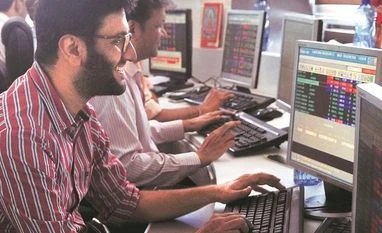It isn't easy being a retail investor right now. The benchmark indices have moved up significantly in the past year and the euphoria sees no signs of abating.
The rally has largely been driven by the surfeit of domestic money and on expectations that earnings will pick up in the coming quarters. Retail investors are bulls by nature and their participation goes up when the market touch new highs.
While the rally may be luring many investors to equities, it may also be tempting some to drastically reduce their exposure amid unsustainable valuations. So, what should investors do?
According to experts, trading and leveraged bets should be off the table now, and direct investors should look at protecting their gains and reducing equity exposure.
"Investors with an active portfolio can convert 25-30 per cent into cash. That way if their call goes wrong, they can still ride the market with the remaining 75 per cent. If the market tanks, their losses are minimised," said Rahul Rege, business head - retail, Emkay Global Financial Services.
While there have been no major earnings disappointments reported so far for the December quarter, experts believe that investors will need to track the earnings numbers more closely. "Keep fixed stop losses and move out of underperformers, and those that have disappointed on the earnings front consistently. New investors should build up their portfolio slowly rather than investing lump sum," said Prasanth Prabhakaran, CEO, Yes Securities.
According to B Gopkumar, CEO, Reliance Securities, markets are likely to consolidate gains after the Budget, and actual earnings performance from companies has become crucial for this rally to sustain over the medium term. The brokerage is positive on IT, private banks, consumer, cement and select pharma stocks.
That said, financial planners are advising their clients to stick to their asset allocation and refrain from getting too greedy or pressing the panic button.Investors may have to temper their returns expectations considering the sharp run-up in benchmark indices in 2017 and the disappointing earnings show so far. The benchmark BSE Sensex ended with gains of 27 per cent in 2017.
"Stopping SIPs altogether could tantamount to market timing. Market players have been expecting the market to tank since 2016 but that has not quite materialised. The most important thing is to invest regularly rather than get the timing right," said Suresh Sadagopan, a financial planner.
SIP or systematic investment plan works on rupee cost averaging and is in effect a long-term investment vehicle. So when the market tanks 10-15 per cent the SIP amount can fetch a higher number of mutual fund units.
"New investors who are getting perplexed and don't know what to do; don't react, talk to your financial advisor on what to do next...For seasoned investors with at least a 10-year horizon, ignore the noise...just another page turned," twitted Vikaas Sachdeva, CEO, Enam Asset Management.
Rege believes that investors can remain invested in stories that are likely to play out in the next few years. "When the market corrects use the opportunity to buy these stocks. That said, investors ought to do a risk-reward analysis and buy only if the valuations look reasonable," Rege said.
Sadagopan, for his part, is advising clients to play it safe by shifting a certain portion of their equity allocation from mid and small-cap funds to large-cap funds. Traditionally, retail investors put 70-80 per cent of their money in mid- and small-cap stocks.
He also says investors should resist the urge to put their money only in the top performing schemes. "Investors need to know who the fund manager is, the risks that he is taking to generate the returns and the categories that will do well in the current market environment. Investing simply based on one-year returns can be a mistake," he observed.
To read the full story, Subscribe Now at just Rs 249 a month
Already a subscriber? Log in
Subscribe To BS Premium
₹249
Renews automatically
₹1699₹1999
Opt for auto renewal and save Rs. 300 Renews automatically
₹1999
What you get on BS Premium?
-
Unlock 30+ premium stories daily hand-picked by our editors, across devices on browser and app.
-
Pick your 5 favourite companies, get a daily email with all news updates on them.
Full access to our intuitive epaper - clip, save, share articles from any device; newspaper archives from 2006.
Preferential invites to Business Standard events.
Curated newsletters on markets, personal finance, policy & politics, start-ups, technology, and more.
Need More Information - write to us at assist@bsmail.in
)